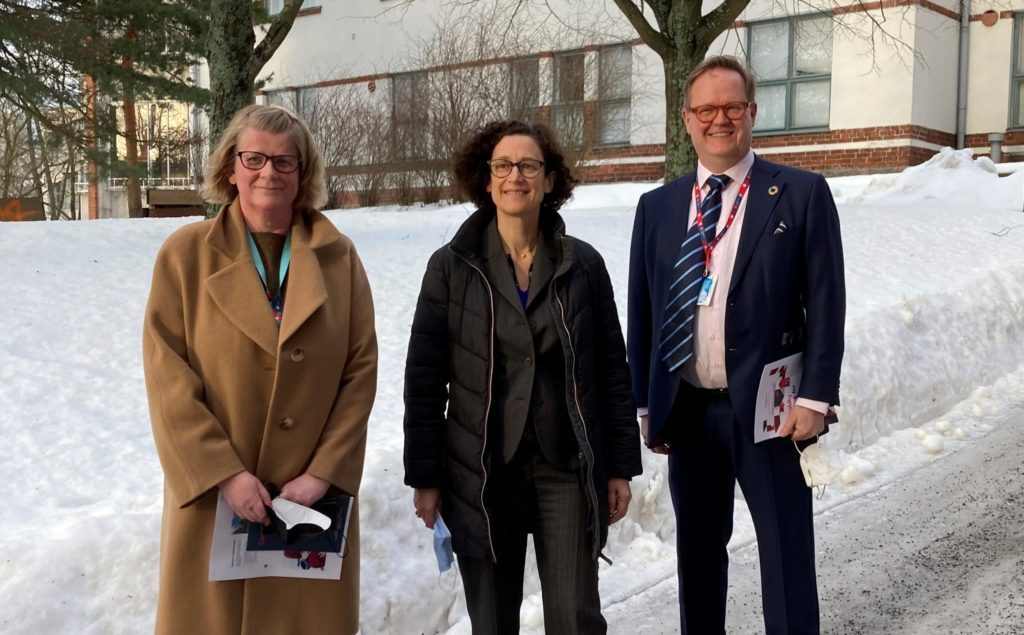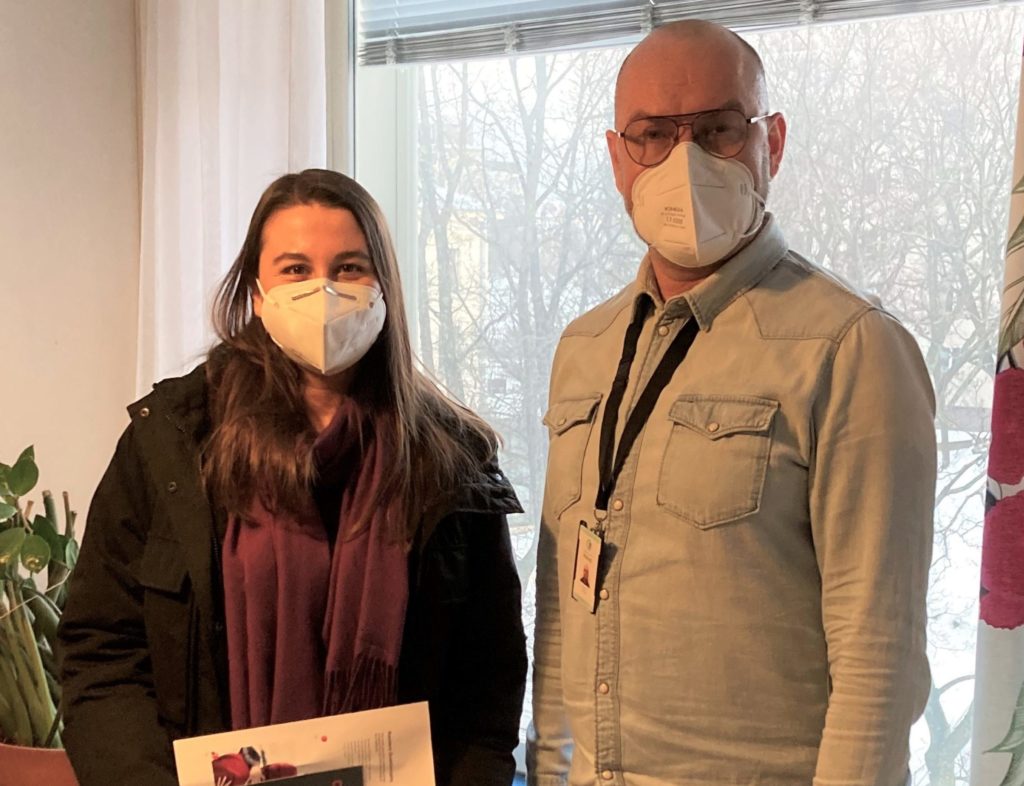The Deaconess Foundation’s Housing First principle raises interest abroad
16.2.2022
Finland is the only EU country where the number of homeless people is decreasing. The Housing First principle has proved that it works, as was also stated by Emmanuelle Wargon, the French Minister Delegate for Housing, who visited the Deaconess Foundation.

Minna Kiviaho, Area Manager at Deaconess Foundation’s Hoiva, Emmanuelle Wargon, French Minister Delegate for Housing, and Olli Holmström, CEO of the Deaconess Foundation, had a discussion on homelessness. In the background, the Hia housing unit, which offers enhanced service housing and demanding enhanced service housing for 19 residents.
French Minister Delegate for Housing, Emmanuelle Wargon, visited the Deaconess Foundation in Helsinki on Thursday, 10 February to learn more about the Housing First work of the Deaconess Foundation’s Hoiva. The visit took place at the initiative of Minister Wargon.
“We are very pleased to have been able to present our work for eradicating homelessness to Minister Wargon. The visit is another indication that Finnish Housing First work is also seen as important elsewhere in the world and that there is a desire to draw inspiration from it”, says Olli Holmström, CEO at the Deaconess Foundation.
According to statistics by ARA, the Housing Finance and Development Centre of Finland, there were around 4,340 homeless people in Finland in 2021.
“At the moment, Finland is the only EU country where the number of homeless people is decreasing. This good development has not happened by chance, as there are many actors who have done systematic work for years now to eradicate homelessness”, Holmström continues.
From emergency accommodation to permanent housing
The Housing First principle starts with the idea that having a home is a basic right that you don’t have to earn. Housing is also the basis for a person’s rehabilitation and that’s why, for instance, non-substance use cannot be set as a condition for getting a home.
On the other hand, housing alone is not enough, but varying degrees of support is also required after that.
“That is why Finland has developed a model for work to combat homelessness, which includes the strong, multidisciplinary expertise of our personnel as well as increasing customer inclusion”, says Minna Kiviaho, Area Manager at Deaconess Foundation’s Hoiva.
Minister Emmanuelle Wargon and her entourage became acquainted with the Hia housing unit, which offers enhanced service housing. The minister was impressed with what she saw.
“We have the same problems in eliminating homelessness, but work in Finland was begun earlier and you already have some more experience on this”, Minister Wargon said at the event.
Kiviaho and Holmström emphasise that temporary emergency accommodation is not a sustainable solution for eradicating homelessness, but that permanent, affordable housing solutions are required. This is also the most advantageous solution from the point of view of society.
“It has been calculated that providing housing for one long-term homeless person saves approximately EUR 15,000 of society’s resources annually, for example, in the form of reduced healthcare costs. Not to mention the human effects involved in eliminating homelessness”, Holmström says.

Policy Officer Magdalena Bordagorry from the Eurodiaconia network also participated in the visit. Markus Karvinen, Unit manager at Deaconess Foundation’s Hoiva, provided a tour of the Women’s housing unit which provides a home for 28 former homeless women.
More information:
Olli Holmström, CEO of the Deaconess Foundation
phone + 358 50 483 6313, olli.holmstrom@hdl.fi
Minna Kiviaho, Area Manager at Deaconess Foundation’s Hoiva
phone +358 50 502 7574, minna.kiviaho@hoiva.fi